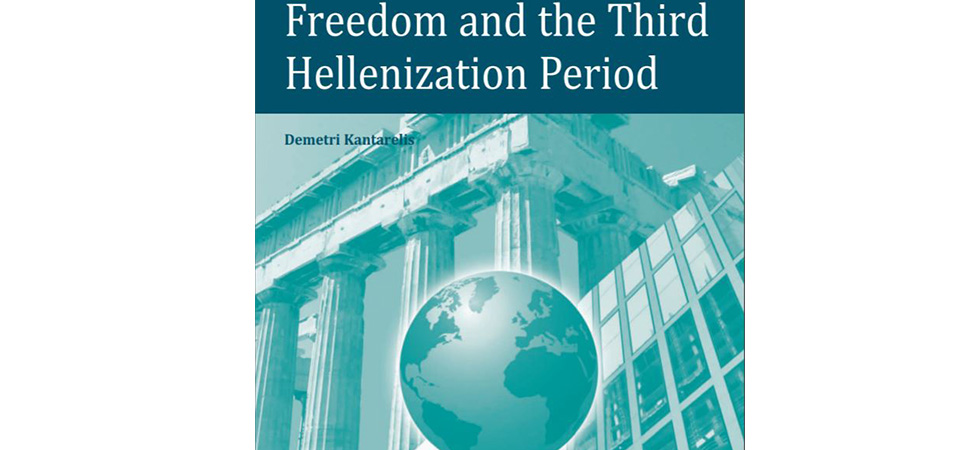Assumption Professor’s New Book Explores how the Ancient Greeks Are Influencing Us Today

Assumption University Professor of Economics Demetrius Kantarelis, Ph.D., recently published a new book, Freedom and the Third Hellenization Period (InderScience Publishing).
According to the publisher’s website, Freedom and the Third Hellenization Period asserts that the world is currently experiencing the Third Hellenization Period, “which started with the Renaissance in Europe after the dark ages, mainly instigated by the teachings of St. Thomas Aquinas.” Hellenization is defined as “the way of life based on general principles, established or improved by Ancient Greeks.”
“The book presents evidence that the Renaissance, the beginning of the current Third Hellenization Period, started with St. Thomas Aquinas, about 200 years before it is currently believed,” shared Prof. Kantarelis. “By introducing Aristotle into theology, St. Thomas Christianized Aristotle and simultaneously re-introduced ‘reason,’” which, by and large, was dormant during the thousand years of the medieval times. Aquinas taught us that truth is a function of both supernatural revelation and natural revelation.”
Prof. Kantarelis discusses the differences between this Hellenization period and the previous two, including the global scope, the adoption of underlying principles, and technological improvements in communications. In the book, he attempts to explain why “the practical and rewarding formulae invented by the Ancient Greeks are everlasting contributions and growing in relevance.” The Ancient Greeks “detonated a freedom explosive, an outburst of ideas and principles” that is exponentially expanding, and growing more than ever before.
In addition to the academic world, Prof. Kantarelis shared that his book may also be of value to business firms, political scientists, natural scientists, artists, and the world of sports. “It emphasizes that the current Hellenization Period, amplified by various social media platforms, increasingly contributes to globalization (the positives of globalization) but not to globalism (the negatives of globalization), to the spread of democracy (direct and indirect), to the importance of arts and natural sciences, and to the spread and evolution of theater arts as well as sport across the world.”
Prof. Kantarelis is also the author of Theories of the Firm as well as Law & Economics, and co-authored Essentials of Inferential Statistics. He holds a Ph.D. from Clark University and served as a post-doctorate visiting scholar at Harvard University for two years. Prof. Kantarelis co-founded the Interdisciplinary Environmental Association (IEA), the Business & Economics Society International (B&ESI), and the Frontiers in Immunology Research Network (FIRN). He currently serves as editor of the Interdisciplinary Environmental Review, the International Journal of Economics & Business Research, and the Global Business & Economics Anthology.
